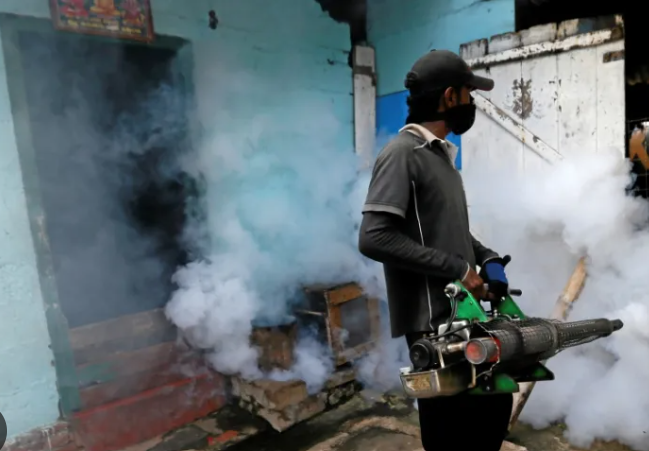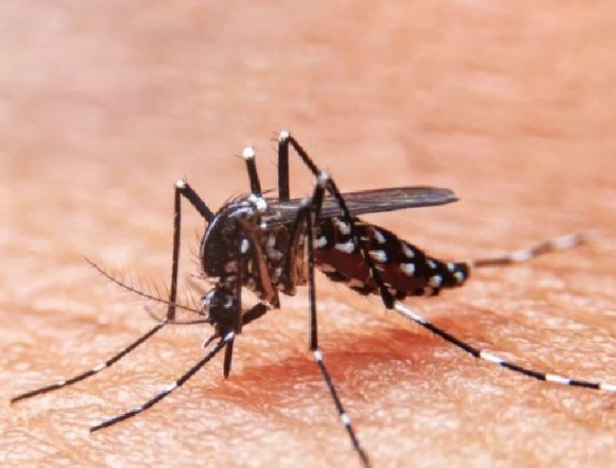
Delhi Grapples with the Devastating Impact of the Third Worst Dengue Outbreak in 2023
Delhi Grapples with Devastating Dengue Outbreak, Marking the Third Worst Incident of 2023
In 2023, the city of Delhi faced a staggering challenge as it grappled with the third-worst dengue outbreak in its history, according to annual data on mosquito-borne diseases. The gravity of the situation, however, was clouded by civic bodies withholding weekly data on vector-borne diseases, a practice abruptly halted after August 7, suspending a long-standing exercise that was diligently followed, even during the pandemic.

Examining Municipal Corporation of Delhi (MCD) bulletins spanning the past 15 years unveils the city’s worst dengue season on record in 2015, with a staggering 15,867 cases and 60 deaths, fueled by a particularly virulent strain. Fast-forward to 2023, and the city recorded 9,266 cases and 19 deaths, marking the third-worst outbreak. A comparison with 2022, with 4,469 cases, highlights the severity of the current situation.
Surprisingly, the usual transparency maintained by MCD, which regularly shared weekly dengue numbers, abruptly ceased in 2023. The last bulletin, released before the halt, reported 348 dengue cases, double the cases during the same period in 2022, signaling the onset of a concerning spike.
Allegations surfaced during a house of councillors meeting on September 26, suggesting that instructions from higher authorities prohibited the release of Delhi’s dengue numbers for the year, allegedly due to the G20 Summit held earlier in the month. The MCD executive wing countered these claims, stating that the weekly reports were not issued as it wasn’t a statutory mandate, and the situation was under control. However, internal MCD data contradicts this assertion.

An anonymous senior municipal official disclosed that the civic body continued preparing weekly reports on dengue cases privately. According to this undisclosed report, the number of cases began to rise in September, reaching its peak in November, constituting a substantial 71.5% of Delhi’s annual caseload.
Publicly available bulletins until August 7 indicated a steady increase in cases, but the subsequent data, not shared until now, disclosed a significant surge, with cases doubling in August and peaking in November at 2,482 cases. The abrupt halt in data transparency raised concerns among citizens and health experts alike.
Of the 9,266 recorded dengue cases in 2023, 7,250 were reported from MCD areas, 177 from New Delhi, 280 from Delhi Cantonment, and 41 from areas under the railways. However, 1,518 cases (16.38%) remained untraceable, adding a layer of complexity to the management of the outbreak. Additionally, MCD classified another 2,645 cases where the infection was acquired from other states.
Health experts attributed the high caseload and deaths to various factors, including the flooding in the Yamuna in July and legal changes making it mandatory to report all dengue cases. A crucial revelation by Health Minister Saurabh Bharadwaj indicated that genome sequencing of 20 samples showed a severe Type 2 strain in 19, which can lead to fatal haemorrhagic fever.

Dr. Sumit Ray, head of the department of critical care medicine at Holy Family Hospital, emphasized the need for transparency, stating that public awareness is crucial in preventing the disease. He urged MCD to be more forthcoming about dengue cases, asserting that awareness is the best preventive measure.
As the city confronts the aftermath of the dengue outbreak, calls for transparency and proactive measures resonate among healthcare professionals and concerned citizens alike, underscoring the importance of open communication in safeguarding public health. Despite numerous attempts, MCD officials remained silent on the matter, leaving citizens eagerly awaiting clarity and decisive action to address this pressing public health concern.
As the situation surrounding the dengue outbreak in Delhi unfolds, the need for transparency and effective communication becomes increasingly critical. The abrupt halt in releasing weekly data has not only raised concerns among citizens but has also underscored the importance of clear, timely information in managing public health crises.
The discrepancy in reported cases and the untraceable instances add a layer of complexity to understanding and addressing the outbreak. With 1,518 cases remaining untraceable, there is a pressing need for a comprehensive strategy to track and manage these instances. Additionally, the classification of 2,645 cases where the infection was acquired from other states emphasizes the interconnectedness of health challenges across regions, necessitating coordinated efforts in disease prevention and control.
For the latest updates-click here.

